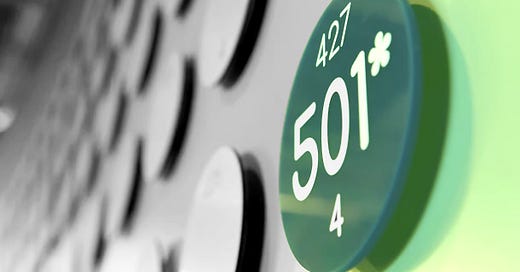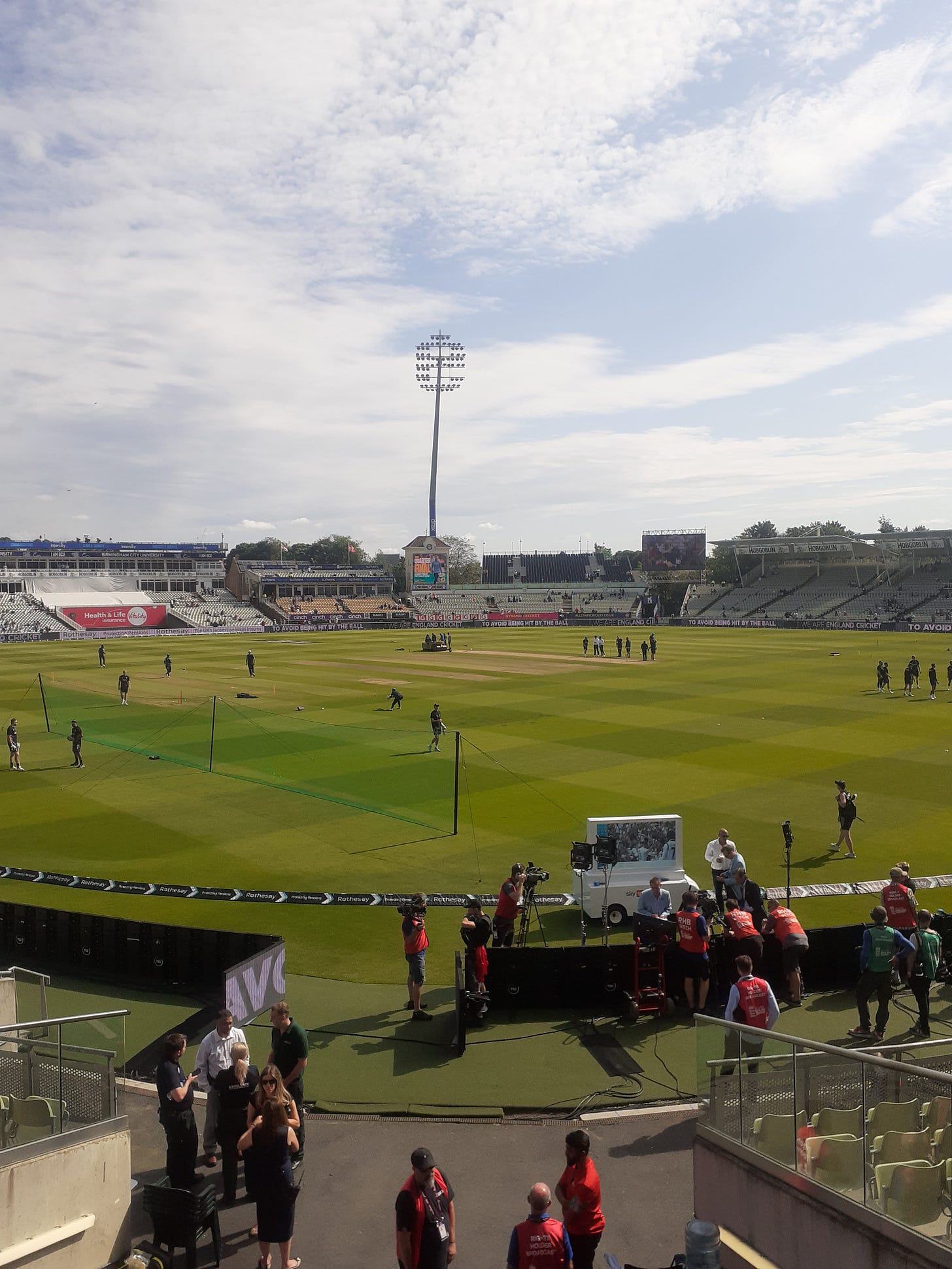Thanks to the generosity of my friend Tom, we were in the same hotel as the England team and most of the broadcast media. After a thumping second day’s play (was that really only day two? It felt like they’d somehow managed to cram a bit of days three and four into it as well) when all was quiet, it triggered a memory.
It was 2003, I was in Amsterdam working on the book Muscle, which was about the very mad, very bad world of professional bodybuilding. After the Mr Olympia contest, which was the most prestigious title in the sport, the bodybuilders spent the next couple of weeks in Europe while they were still in some kind of shape, competing in a series of Grand Prix. This one was the Dutch Grand Prix.
We were staying in Amsterdam, in a hotel owned by the girlfriend of Dorian Yates, a now retired six-time Mr Olympia who was promoting the show. He couldn’t find a venue in Amsterdam so the event was in the town of Haarlem, a bus ride away.
The coach came to pick us up, and everyone got on. I was sitting in front of Ronnie Coleman, who had just won his fifth Mr Olympia. I’d chosen the seat deliberately as I wanted to try and interview him, something he had so far successfully avoided, and as soon as the coach started moving, Ronnie fell into a deep tactical sleep.
I looked around the coach. Almost all of the top ten bodybuilders on earth were aboard, plus a couple of former Mr Olympias, and the sport’s leading organiser, a Machiavellian figure from New York called Wayne De Milia. While I tried and failed to cough loudly enough to wake Ronnie Coleman, It occurred to me that if the coach was to crash that would be it for world bodybuilding.
Pretty much the entire sport fitted onto a hired bus headed for a Dutch town on a sunny and cold Sunday afternoon. It felt almost the same in Birmingham, everyone under the same roof and in the morning we’d all get up and go to the ground, some to play, some to work, some to watch.
Live from the 501…
At the ground we entered the murky world of corporate hospitality, also known as the 501 suite. I very much consider myself a man of the people until something like this comes along, and then I very much consider myself a man of the other people, the people that get invited to the 501 suite, with its sweeping view of the ground, magnificent buffet lunch and all-day bar.
Above all of this, though, was the promised arrival of the man for whose legendary deed the suite was named, Brian Charles Lara himself. His scheduled arrival time was somewhat hazy, but then like a lot of well-known people he seemed to run on his own kind of schedule, and anyway, whenever he arrives anywhere people are going to be pleased, so who cares?
He materialised with a crackle of electricity that often accompanies real fame, and later told a story about being late to the 501 suite for a dinner earlier in the season. He’d been trying to catch a train at Euston and was looking at the screens when a guy came up to him.
‘Are you Brian Lara,’ he asked.
‘Yes’, Lara said, and did the usual photo.
‘Where are you going,’ the man asked.
‘Well I’m trying to get to Birmingham but I can’t see the train up here.’
‘Ah,’ the man said, ‘Birmingham, yes! This way, this way. I know it. I am going there too!’
Lara went to pick up his luggage but the man said, ‘Brian Lara should never have to carry his own suitcase,’ and grabbed it first. He led him confidently onto the train and sat in the same carriage. Once the journey began it quickly became apparent that the train was going nowhere near Birmingham but non-stop to Warrington instead. Lara arrived one and a half hours late to the 501 Lounge. Such is the life of a legend.
Smith’s big one
There’s an episode of the very fine podcast Tales From The Oval dedicated to the greatest innings played at the ground. Obviously the greatest of them all is WG’s 224 for All-England against Surrey made in 1866, when he was 18 years old and about to invent modern batting. This was also the innings that he interrupted overnight to win the 440-yard hurdles at Crystal Palace – no ice baths and tactical debriefs in the meeting room for WG.
As the pod reveals, back then, a shot that cleared the boundary ropes only counted four. To hit a six a ball had to travel out of the ground, one reason for the relative lack of maximums on the scorecards of the era.
You wonder what the six count would be if the law still stood. One man who would already have two chalked up is Jamie Smith. On debut at Lord’s he hit one over the Tavern stand and into St John’s Wood Road. Then at Edgbaston he pinged another high above the Hollies stand, an astonishing shot to see in the flesh. The ball’s apex didn’t come until it was over the roof, a truly massive hit.
It wasn’t even the best shot he played – that was an extra cover drive off the back foot that left electric traces as it sped across the turf. He has a very modern set-up, and hits almost everything with a vertical bat. His pull shots, taken early, go anywhere between mid-on and midwicket, which made it mystifying why Kraigg Brathwaite persisted in having a square leg, who got nowhere near the ball all day.
At least it made a folk hero of Mikyle Louis, who had to field there and whose name was chanted endlessly by the crowd behind him as he sprinted around. He seemed to like it, though, and got some runs in the second innings. He’s big, imposing at the crease, plays fast bowling well and twangs it powerfully through midwicket himself. Hopefully they stick with him.
The crushing inevitability of Joe Root
The Edgbaston outfield was lush and slow after a summer of rain, hence the number of twos taken by Joe Root early in the day (“seven in his first 15 runs,” confirmed Zaltzman later). At breakfast, Root had struggled with the – admittedly baffling – hi-tech coffee machine (Tom had returned smugly to our table saying he’d had to show him how to work it) but once he was back in his natural environment in the middle, he purred along even as England fell to 50-odd for five. He glided past Lara’s 11,953 Test runs to 12,000 and beyond. Will he catch Sachin? Apparently he’s missed only two Tests since his debut, and needs to play another 48 at his current rate of scoring. Sounds easy, dunnit, but then so did Tiger catching Jack Nicklaus at one point.
Whatever happens, he will no doubt have rooms and stands and grounds named after him, and know something of the strangeness that Brian Lara must feel, appearing years later in these monuments to deeds accomplished in youth that grow ever vaster with time.






I doubt Joe Root will be able to catch Sachin.
Difficult to maintain that consistency for 3-4 years.
Shocking to see that a player of Joe Root calibre is still to score a 💯 in Australia given how often and how much they Play there.